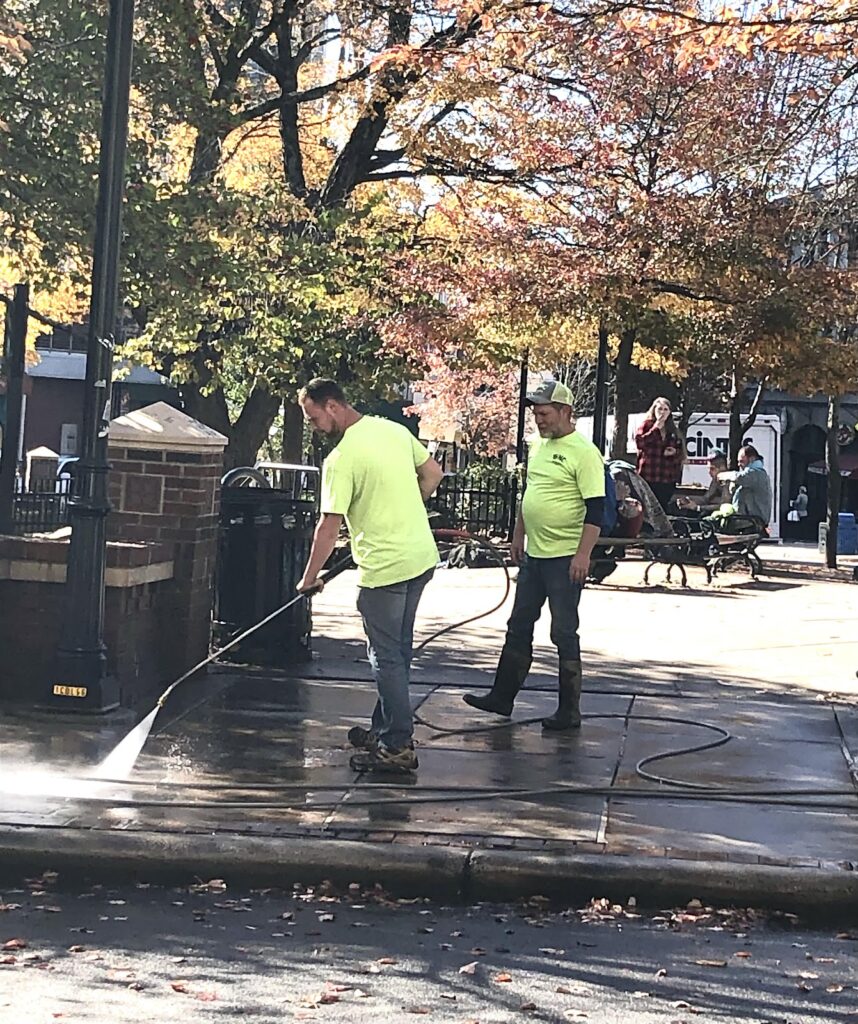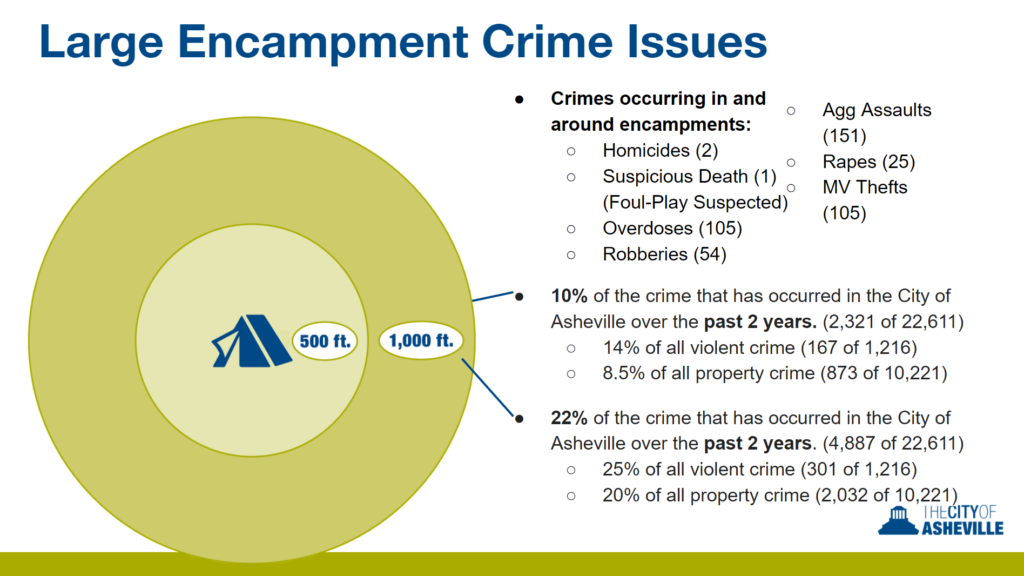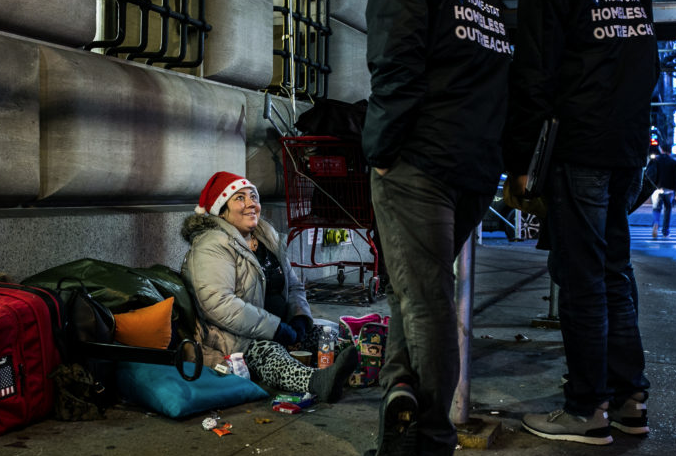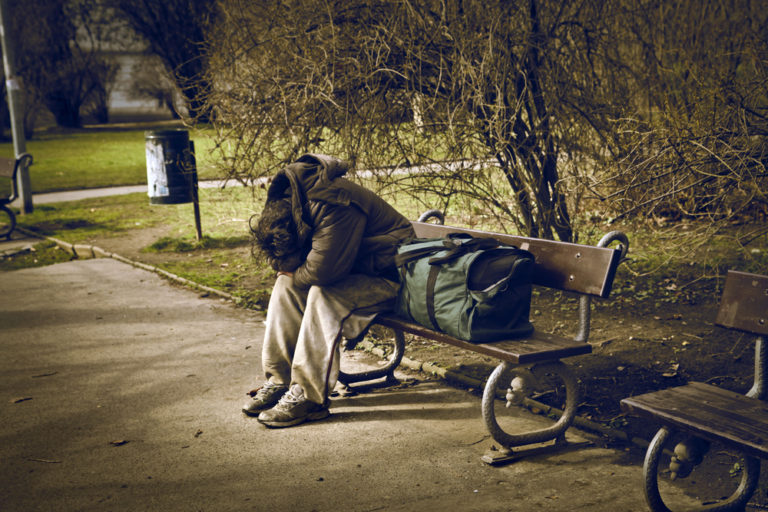Key Takeaways
- Homelessness is a community-wide issue that requires a community-wide response.
- The City is responding daily while also working with partners on longer term solutions to address homelessness. Community opinions differ on best approaches.
- City continues to address criminal behavior as well as increased monitoring and clean-up of parks and other public property.
- City has procedures it implements when homeless camps occur on publicly or privately owned property with safety of the campers, the general public and staff always being the highest priority.
- Encampments are unsafe and not solutions to homelessness.
- City’s goal is to move beyond managing homelessness to ending homelessness.
As a resident or business owner in Asheville, you’ve probably seen one of the 527 people living unsheltered in Asheville (2021 Point-in-Time count). They are members of our community who have needs that are not being met, and in most instances, there isn’t a quick fix for their complex needs.
Population Characteristics
When we have community members living unsheltered, the needs of the individuals must be addressed daily. Their individual needs must also be balanced with the needs of the greater community. Click here to view the presentation given to Asheville City Council on Tuesday, Jan. 11.
In the delivery of daily responses and long term solutions to homelessness, the City of Asheville embraces the following values:
- Homeless people are not the problem. Homelessness is the problem.
- Homelessness is a public health issue, an equity issue and a housing issue.
- Strategies and decisions should be data driven
- Homelessness is a solvable problem.
These values inform the contributions the City makes to maintaining a safe community. However, City government cannot end homelessness alone. These values also provide a foundation for how the City approaches and develops partnerships to end homelessness.
Safety – A Daily Response
Every day, City staff from Community & Economic Development, Public Works, the Police and Fire Departments and Parks & Recreation work with partner agencies to address community needs on many fronts.
Working to House the Homeless
The work of ending homelessness takes commitment and strategy. Every day, City staff work to increase access to safe, affordable, and stable housing. Housing is one component of ending homeless and in 2020, City government facilitated and supported the development of 373 units of affordable housing.
In addition to investing in the creation of affordable housing units, in 2021, the City created a temporary emergency shelter at the Ramada. Some of the successes include:
- Several of the 80 people housed at the Ramada have already moved to permanent housing. An additional 21 are slated for permanent housing placement.
- 87 applied for jobs, and 38 started employment.
- Another 42 engaged in substance use treatment.
- And 161 connected with foundational support and other crucial services such as obtaining IDs, SNAP, Medicaid, and education.
These are significant milestones toward recovering from homelessness. This is on top of the 48 people the City and its partners transitioned to permanent housing from the temporary shelter at the Red Roof Inn last year.
While the Ramada emergency shelter project won’t proceed as initially envisioned, the City was able to identify a partner for permanent supportive housing, which is also greatly needed in our community. City Council voted to formalize that partnership at their Dec. 14 meeting by assigning the real estate contract to purchase the Ramada at 148-150 River Ford Parkway to Shangri-La Industries Inc. for the purposes of creating permanent supportive housing. City Council also authorized the City Manager to enter into an agreement with Step Up on Second Street Inc. for three years of supportive services for future residents of permanent supportive housing at that location.
The City has begun a planning process with its partners for an emergency shelter at a different location — a need many in the community have acknowledged.
Key Takeaway: Our whole community benefits when we invest in ending homelessness.
Locally, Homeward Bound estimates the average taxpayer cost of a chronically homeless person to be between $30,000 and $50,000 per year. Associated costs include policing, incarceration, and emergency room visits. In contrast, the average cost of providing supportive housing is $12,800, saving taxpayers $17,200 – $37,200 per person per year.
In addition to the daily efforts to address homelessness through Homelessness Initiatives, a number of City departments respond daily to maintain a safe environment for all.
Maintaining a Safe Environment
The realities of homelessness are also felt throughout our community such as soliciting along streets, camping along greenways, needle litter, and aggressive dogs. Staff from many departments are hearing about homelessness in our neighborhoods; they then share the information with departments who collaborate and coordinate a response. Similar discussions also take place with business owners. Resources such as the Homeless Resource Guide for Businesses are shared and available on the City’s website.
The Asheville Fire Department responds to medical emergencies in partnership with Buncombe County’s EMS program. In addition to treating medical emergencies and coordinating transportation for medical services, firefighters connect our unsheltered neighbors with service providers. When firefighters respond to extinguish illegal fires started by homeless campers, they face the difficult reality that the safety of all conflicts with the needs of unsheltered people, sometimes trying to stay warm or cook.
The City’s coordinated response to homelessness is also seen in the increased resources dedicated to maintaining a welcoming atmosphere and safe environment for all people in our parks. To address concerns about not just homelessness but crime, a Park Warden presence is established in our downtown parks, trash pick up has been increased to three times a day in Pritchard Park, and signage to address acceptable behavior in parks has been installed. These changes are in addition to the park being pressure washed the first and third Mondays of each month, weather permitting.

Photo Credit: City of Asheville
Similar work is taking place in City parks outside of downtown. Every City park is visited daily to ensure cleanliness and address safety issues such as needle litter. Additionally, City staff is looking at necessary changes to current ordinances related to certain activities, such as leaving food in parks.
Asheville police officers work to offer a variety of resources to people within camps on a daily basis. Officers routinely provide supply/food boxes to unsheltered people and give unsheltered people rides to Code Purple sites when temperatures dip below freezing. Most people City staff and APD encounter at camps are unsheltered people who are cooperative and cooperate with staff to move within requested time frames. In most cases, citations are not issued to campers but occasionally to activists who refuse to leave or obstruct camp clean-up or tent removal.
In addition to supporting unsheltered people connecting with supplies and resources, the Asheville Police Department also has the responsibility to maintain safety for all people. With respect to illegal camping and trespassing, there are a number of laws and ordinances related to camping:
- No camping on City Property – City Ordinance: 12-51
- Public Urination – City Ordinance: 11-15
- Parks Closing Time (10pm to 6am) – City Ordinance: 12-41
- Trespassing – North Carolina General Statute: 14-159.13
- No Tents or Shelters on City Property – City Ordinance: 12-52
- Obstruction of Sidewalks – City Ordinance: 16-2
APD is responsible for enforcement of these ordinances.
City Procedure for Illegal Camping
When a homeless camp must be removed, the guiding principle is to treat all people with dignity and respect. City staff work with community partners to address the public health and safety concerns. Whether camps are on City-owned land or private property, people living in the camps are visited multiple times by several community partners. Strengthening this response is the coordinated and collaborative approach taken when freezing temperatures trigger Code Purple protocols. In these instances, additional efforts are made to connect people impacted by removal with the shelter offered by Code Purple community partners.
Specific to camp removal on City-owned land, the past practice has been to give 7-days advance notice unless there was an immediate safety risk. This approach worked when people were camping in small groups. Camp removal on private property is at the discretion of the property owner. On private property, the Asheville Police Department is responsible for enforcing trespassing laws at the request of the property owner.
Over the last few years, the occurrence of illegal camps and trespassing has increased across the city. This increase coincided with the COVID 19 global pandemic. Based on guidance from the CDC, illegal campers were allowed to shelter in place. This approach, however, led to the unintended consequence of large camps forming at various locations across the city. These encampments create health and safety issues for people in the camps as well as the surrounding areas and neighborhoods. With current limited resources, it is much easier for staff and our partners to assist 3 to 5 campers with shelter and other needs rather than when the camp increases to larger numbers of campers and encampments.
Over the past 2 years, 25% of the violent crime that has occurred in the City of Asheville has occurred within 1,000 feet of these encampments. It is the City’s responsibility to maintain safety for all people in Asheville. The data is clear. Encampments are not safe for those who reside within them or in nearby neighborhoods.

With the duty to provide safety as the highest priority, City staff realized the need to adapt and evolve to respond to this changing environment.
Adjusted procedure for addressing illegal camping
- City of Asheville receives a complaint or discovers illegal camping
- Determine if the camp is on private property or COA property.
- Determine if a safety issue is present. (Examples: violent crime, blocking access, fire, etc.)
- Contact City-funded Street Outreach Team Members (Homeward Bound) to provide outreach related to service opportunities
- Once a site visit has been completed by Street Outreach Team, City staff (to include APD) communicates to person that they will need to leave within 24-48 hours (unless there is immediate risk)
- Once person(s) have left the property, COA or property owner cleans the site
Safety – A Daily Partner Response
A daily response also involves coordination with our partners. The City funds two Street Outreach Coordinators who work for Homeward Bound, a community organization that prioritizes providing permanent housing to people experiencing homelessness. Funding for the coordinators comes as a result of City Council funding priorities. The Street Outreach Coordinators (paid for by the City) enter encampments to talk to unsheltered individuals. During these conversations, the coordinators assess their needs, give information about local shelters and health care providers, and register them for a housing list, even though it may take many months — or even years — to get to actual housing.
The partnership with Homeward Bound continues in the work that is underway to improve neighborhood safety through the addition of additional lighting and benches, proactive outreach on North Ann Street and recruiting volunteers for trash pickup.

Photo Credit: Deposit Photos
Partnership is also reflected in the City’s support of Buncombe County’s COVID testing and vaccinations for unsheltered people who may not otherwise be connected with these services.
A final example of strong partnership is evident in our community’s approach to Code Purple.
Code Purple is a coordinated partnership between local helping agencies and government organizations to bring unsheltered people indoors overnight when temperatures go below freezing. Last winter, the City coordinated and funded shelter with Western Carolina Rescue Ministries. This winter, the City is coordinating with partners based on data from last winter and has invested $100,000 in funding to Asheville Buncombe Community Christian Ministry. Feedback from partners also inspired the posting of Code Purple on the Harrah’s Cherokee Center’s marquee each night Code Purple is in operation. This information is also posted on the city’s website.
We are all in this together
Ending homelessness requires a communitywide approach. It will take advocacy and contributions from multiple community partners and stakeholders. Moving forward daily, City staff will continue to prioritize safety for people experiencing homelessness.
In addition to daily responses, the City will continue to prioritize partnership with all stakeholders to develop and implement solutions and investments that provide opportunities for people to exit homelessness into permanent housing. We are all in this together.
For more information on ending homelessness in Asheville, visit ashevillenc.gov.
